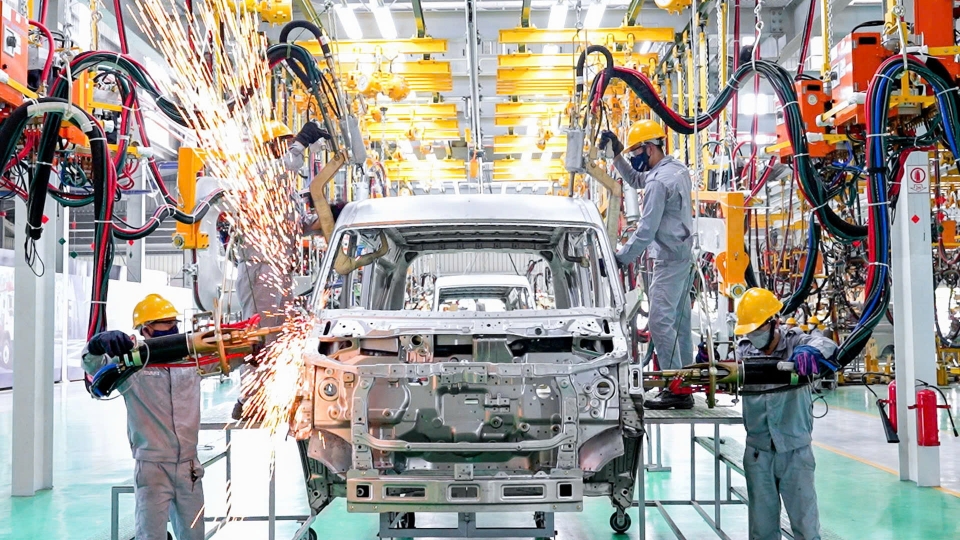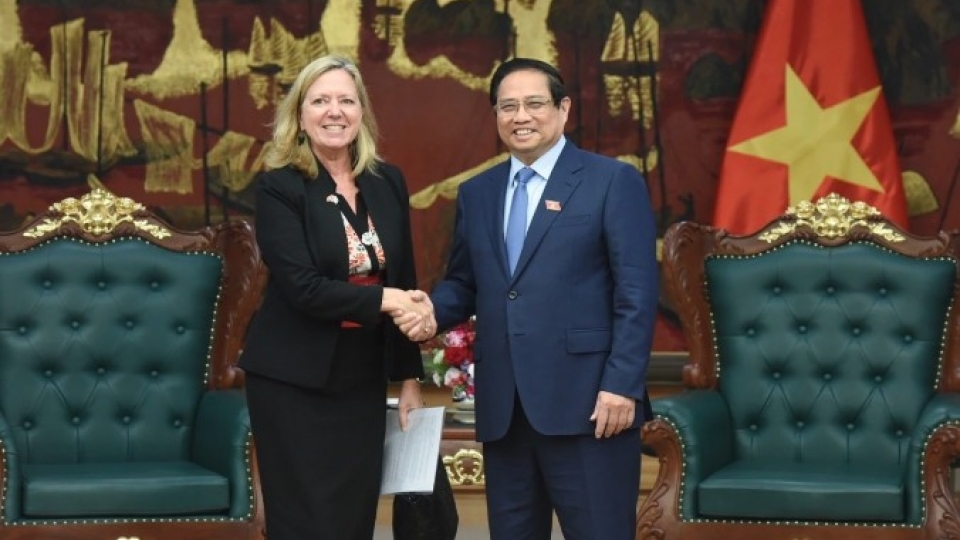Vietnam, WB strengthen knowledge exchange to tackle major challenges
VOV.VN - Prof. Dr. Nguyen Xuan Thang, President of the Ho Chi Minh National Academy of Politics (HCMA) held a meeting in Hanoi on November 26 with Carlos Felipe Jaramillo, Vice President of the World Bank (WB) for East Asia and the Pacific, who is on a working visit to Vietnam.

The HCMA President Nguyen Xuan Thang welcomed Vice President Jaramillo and the World Bank delegation, saying that the cooperation between the Academy and the World Bank in recent years has been practically effective, strategically meaningful, and has contributed considerably to enhancing the Academy’s training and research quality.
Professor-Doctor Nguyen Xuan Thang noted that Vietnam’s current development requires not only financial resources but also knowledge, management skills, experience, and strong integration into the global economy. Vietnam is focusing on three strategic breakthroughs, including institutions, infrastructure, and human resources.
Regarding institutions, Vietnam is removing obstacles while establishing new frameworks to promote innovation, circular economy, green growth, and equitable energy transition.
Particularly on human resources, Thang stressed that workforce development should focus on quality rather than quantity. Training is essential and must meet practical needs; untrained labor cannot serve the development agenda.
He proposed that the WB continue supporting Vietnam in leveraging global knowledge and experience to address major challenges, including climate change, water management in the Mekong Delta, and sustainable agricultural development.
Both sides agreed to further enhance expert exchanges for strategic-level training programs and collaborate in presenting forums relating to the Vietnam 2045 Report.
Expressing deep admiration for Vietnam’s strong development achievements and reforms, such as consolidating and reducing the number of provinces, cities, ministries, and administrative procedures, Vice President Jaramillo praised Vietnam’s development experience, highlighting the Vietnam 2035 Report, which the WB has referenced for other countries.
He noted that Vietnam’s recent reduced reliance on loans underscores that the WB’s role extends beyond financing to providing knowledge, expertise, and technical support.
He suggested that future cooperation focus on two areas: human resource development and facilitating complex, high-risk investment projects, such as high-speed rail, urban infrastructure, and climate vulnerability adaptation.
Vice President Jaramillo also expressed the WB’s desire to support Vietnam in transforming its education system to meet emerging trends such as artificial intelligence and automation. He affirmed that his organization will continue close, in-depth cooperation with the HCMA to disseminate governance knowledge and policy guidance across the political system.
During the meeting, both sides consented to further step up cooperation in research, policy advisory, staff training, and organizing international conferences and roundtables in the upcoming period.




